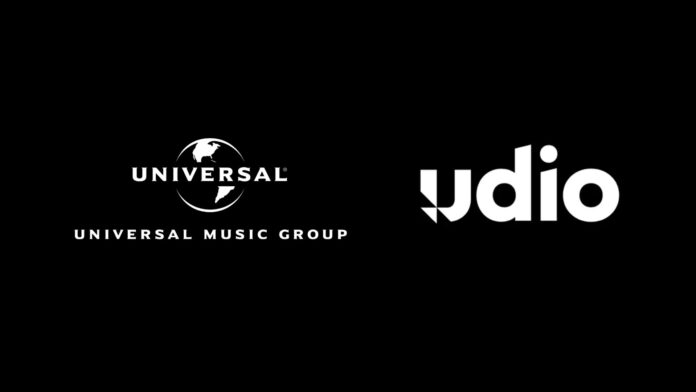In a landmark move late Wednesday (October 29) evening, Universal Music Group announced that it has settled its copyright infringement litigation against AI music platform Udio.
According to the announcement, the companies “will collaborate on an innovative, new commercial music creation, consumption, and streaming experience”. The new platform is set to launch in 2026.
The statement added that “in addition to the compensatory legal settlement, the new license agreements for recorded music and publishing will provide further revenue opportunities for UMG artists and songwriters”.
The news arrives just over a year after the RIAA, on behalf of all three major record companies, sued Udio and peer for Suno for “mass infringement” of copyright.
UMG’s new agreement with Udio comes as Universal and the other majors continue pursuing copyright claims against Suno.
The Financial Times reported earlier this month that labels were nearing licensing deals with AI music companies.
UMG said that Udio’s existing product will remain available to users during the transition period “with creations controlled within a walled garden and the service amended in multiple ways — including fingerprinting, filtering, and other measures — before the launch of the updated service”.
The subscription-based platform will allow users to customize, stream and share music within what the companies describe as a “licensed and protected environment.”
“These new agreements with Udio demonstrate our commitment to do what’s right by our artists and songwriters, whether that means embracing new technologies, developing new business models, diversifying revenue streams or beyond,” said Sir Lucian Grainge, Chairman and CEO of UMG.
“We look forward to working with Andrew who shares our belief that together, we can foster a healthy commercial AI ecosystem in which artists, songwriters, music companies and technology companies can all flourish and create incredible experiences for fans.”
“These new agreements with Udio demonstrate our commitment to do what’s right by our artists and songwriters, whether that means embracing new technologies, developing new business models, diversifying revenue streams or beyond.”
Sir Lucian Grainge, UMG
Andrew Sanchez, Co-Founder & CEO of Udio, added: “We couldn’t be more thrilled about this collaboration and the opportunity to work alongside UMG to redefine how AI empowers artists and fans.
“This moment brings to life everything we’ve been building toward – uniting AI and the music industry in a way that truly champions artists. Together, we’re building the technological and business landscape that will fundamentally expand what’s possible in music creation and engagement.”
UMG says the deal represents “industry-first strategic agreements.” UMG also claims to be “the first company” to enter into AI-related agreements with YouTube, TikTok, Meta, KDDI, KLAY Vision, BandLab, Soundlabs and Pro-Rata, among others.
The settlement arrives amid intensifying legal disputes over whether AI companies can legally train their models on copyrighted music without authorization. In September, record labels amended their complaint against Udio to include allegations that the AI company “illegally scraped” YouTube videos in order to collect content on which to train its AI models.
That addition followed a separate copyright case against AI company Anthropic, in which a court ruled earlier this year that Anthropic’s unauthorized use of copyrighted books counts as “fair use” under US copyright law, but the company’s downloading of massive amounts of books from online pirate libraries does not.
On October 10, Udio filed a motion to dismiss the YouTube scraping allegations, arguing that US copyright law doesn’t criminalize downloading publicly available videos. The company’s lawyers contended the Digital Millennium Copyright Act forbids the circumvention of “access controls” that prevent users from reading, viewing or listening to certain content, but it doesn’t forbid circumventing “copy controls” that prevent reproduction of a work once it has been accessed.
In an October 24 response, lawyers for the record labels said Udio’s argument contains “fatal flaws,” arguing that it treats the DMCA’s prohibition on circumventing access “as an all-or-nothing proposition,” and that it treats “access controls” and “copy controls” as “a binary choice. Both positions are wrong.”
The labels are pursuing nearly identical claims against Suno, which filed its own motion to dismiss YouTube scraping charges, seven days before Udio using similar arguments.
The UMG-Udio partnership comes less than a month after the Financial Times reported that UMG and Warner Music Group were nearing licensing deals with AI music companies in a bid to “set a precedent for how AI companies pay for music”.
Udio launched publicly in April 2024 with backing from Andreessen Horowitz (a16z), a Menlo Park, California-headquartered venture capital firm, musician will.i.am, Mike Krieger (co-founder and CTO of Instagram) and Oriol Vinyals (VP of Research at Google’s Gemini). The platform was developed by former researchers at Google DeepMind.
Music Business Worldwide


